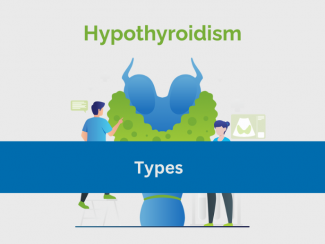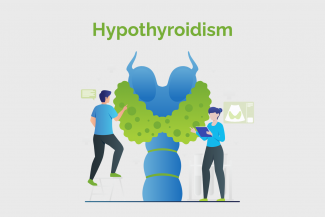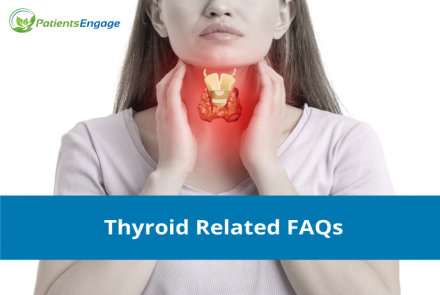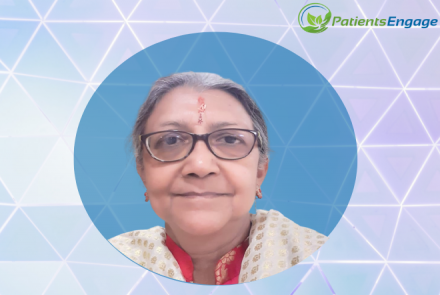Approximately 11% of Indian adults suffer from hypothyroidism, a condition in which the thyroid gland does not produce enough thyroid hormones to meet the needs of the body. This makes your metabolism slow down. It is also called underactive thyroid. This condition is more prevalent in women than in men, especially among women of child-bearing age.

The following are the types of hypothyroidism -
- Primary hypothyroidism is the most common type of hypothyroidism. It occurs when the dysfunction is in the thyroid gland itself.
- Central hypothyroidism
- Secondary hypothyroidism occurs when there is dysfunction in the pituitary gland.
- Tertiary hypothyroidism results from hypothalamus disorders.
- Subclinical or Underactive Thyroid is the early form of thyroid failure when T4 levels are still normal. It is seen in 3-8% of the general population.
- Congenital hypothyroidism is when it is an inborn disorder.
Changed
22/Jan/2025
Community
Condition
















